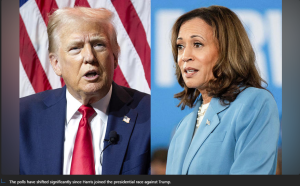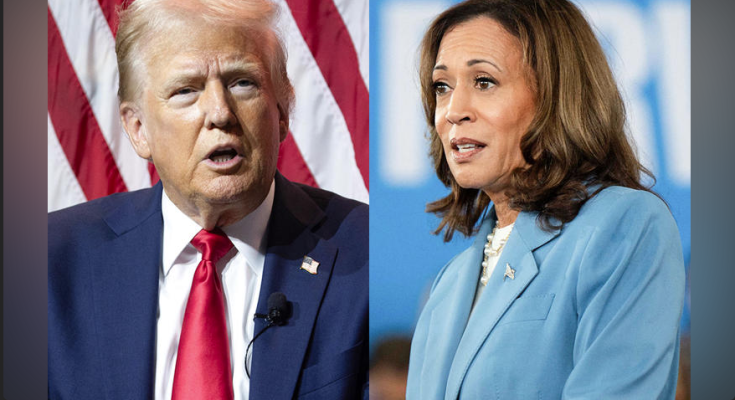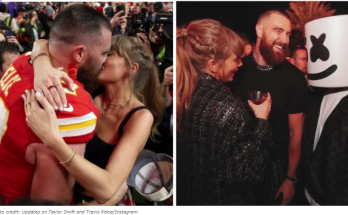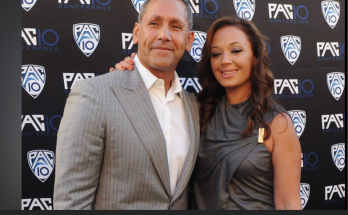Five poll numbers that tell the story of the Democratic convention — and what’s coming next

CHICAGO — A historic switch in the presidential ticket. A shift in the polling. And a still-undefined presidential nominee.
That’s the backdrop to this week’s Democratic convention, which began Monday with President Joe Biden passing the torch to Vice President Kamala Harris and will end Thursday night with Harris officially accepting her party’s presidential nomination.
These five numbers help set the stage for this week’s events — and for the rest of the 2024 campaign once the conventions are over.
(1) 4 points
That’s Harris’ lead over Republican Donald Trump in the latest national Washington Post/ABC News/Ipsos poll, 49% to 45% among registered voters.
While the result is within the poll’s margin of error, it’s consistent with other national and battleground polling showing her with a slight edge over Trump.
And it’s a significant change from a month ago when Biden was still in the race. In July’s Washington Post/ABC poll, Biden and Trump were tied at 46%.
(2) 81%
That’s the share of Democratic voters who say they’re satisfied with Harris as the party’s presidential nominee, versus 15% who say they would have preferred someone else, according to a recent national CNBC poll.
It’s a staggering shift in enthusiasm from July’s NBC News poll, when just 33% of Democrats said they were satisfied with Biden as the nominee, compared with 62% who wanted someone else.
(3) 9 points
That’s Harris’ deficit on the economy against Trump, according to that WaPo/ABC poll. In that survey, 46% of voters say they trust Trump more on the economy, versus 37% who trust Harris more.
Trump’s advantage on the economy is consistent with what other polls have shown, although a Financial Times poll found the two candidates essentially even on the issue.
So Harris is trailing on an issue that voters typically say is the most important one facing the country in 2024. But it’s also less than half the size of Biden’s deficit against Trump on the economy when NBC News’ poll tested them on the issue six months ago.
This comes as Harris has tried to put more meat on the bone of her economic platform, between her speech on Friday laying out plans to address the cost of food, housing, medicine and child care if elected and the news Monday that she supports raising the corporate tax rate to 28%.
(4) 64%
That’s the percentage of voters who say they know what Harris stands for, per a recent CBS News/YouGov poll.
That’s a majority of voters, but it’s smaller than the 86% of voters who say they know what Trump stands for.
That illustrates one of the Democrats’ top goals for this convention: clearly define their party’s presidential nominee to the public, as the Republicans race to define her on their terms.
(5) 45%
Relatedly, that’s the share of likely voters in the New York Times/Siena College polling of Arizona, Georgia, Nevada and North Carolina who say Harris is too liberal or too progressive.
It’s a narrow plurality of the total respondents, compared to 6% who say she’s not liberal/progressive enough, and 43% who say she’s not too far in either direction.
That’s compared with 35% of likely voters who believe Trump is too conservative, 9% who say he’s not conservative enough and 47% who say he’s not too far in either way.
So in the race to define Harris, more voters — right now — believe that the Democratic nominee is too liberal than believe that the Republican nominee is too conservative.
Can Harris and the convention change that perception? This week will help answer that question — and perhaps determine whether she can maintain her momentum in the homestretch of the campaign.



